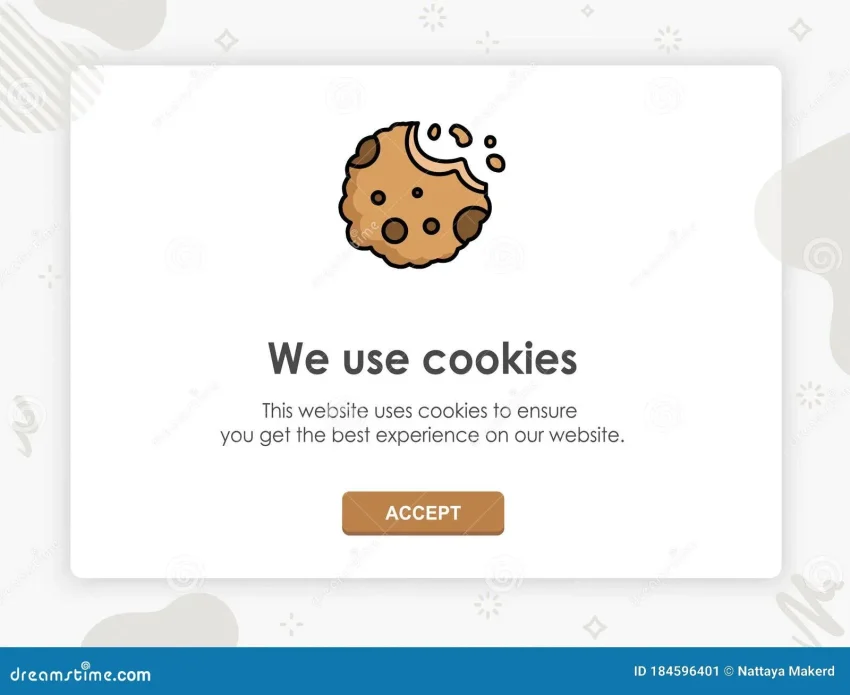Cookies Usage on Websites: Understanding Their Importance
Cookies usage on websites has become a fundamental aspect of how we experience the internet today. These small text files, often referred to as internet cookies, allow websites to remember user preferences, tailor content, and streamline interactions. From necessary cookies that ensure basic website functionality to marketing cookies that personalize ads based on user behavior, understanding these cookie types is crucial for anyone navigating the digital landscape. With growing concerns over online privacy, obtaining cookie consent has never been more important, empowering users to take control over their personal data. As you explore our site, you’ll notice how cookies enhance your browsing experience while keeping your online activity secure.
The utilization of tracking technologies on the web, often known as browser cookies or tracking pixels, plays a pivotal role in shaping user interactions. These digital tools, essential for website functionality, enhance the customization of user experiences by remembering preferences and habits. Equally important is the aspect of obtaining user approval, which is vital for ensuring online safety and transparency. With various forms of website cookies, ranging from functional to analytical and marketing, understanding their implications can significantly impact your web experience. As we navigate through the intricacies of online data practices, let’s delve deeper into how these elements interact with our online presence.
Understanding Cookies Usage on Websites
Cookies are small text files that web servers download to a user’s device when they visit a website. They play a crucial role in enhancing user experience by storing user preferences and tracking usability metrics. Upon returning to the site, these cookies allow the website to remember who the user is and provide tailored content. There are different types of cookies that websites utilize, including essential cookies, which ensure basic functionality, and non-essential cookies that help in analytics, advertising, and social media interactions.
Most websites today implement a cookie consent mechanism to comply with privacy regulations. This process not only allows users to consent to the use of cookies but also provides them with the power to revoke their consent at any time. The importance of transparent cookie usage includes fostering trust and enhancing online privacy, as users become more aware of how their data is being used and what kind of data they are sharing with websites.
Types of Cookies and Their Functions
Cookies can be categorized into several types based on their functionality and purpose. Essential cookies are vital for website functionality, allowing users to navigate and access secure areas of the site. Without these cookies, websites would not be able to operate effectively. On the other hand, preferences and statistics cookies enhance user experience by personalizing content based on user behavior and preferences, such as language settings or regional selections.
Marketing cookies are another category designed to track users across different websites. They are used primarily to deliver personalized advertisements based on user interests and browsing behavior. This form of tracking is essential for advertisers aiming to present relevant ads that engage their target market, ultimately leading to higher conversion rates. With a growing emphasis on user privacy, many users now prefer to manage cookie settings, highlighting the importance of informed cookie consent.
The Importance of Cookie Consent
Cookie consent is a critical aspect of website compliance with regulations like GDPR and CCPA. Users have the right to know what data is being collected and how it is being used. A user-friendly cookie consent interface is essential, allowing visitors to make informed choices about their data sharing preferences. By providing clear options for necessary and non-essential cookies, websites can ensure that users feel secure while browsing, which in turn can enhance customer loyalty.
Moreover, cookie consent mechanisms empower users to take control over their online privacy. By clearly communicating cookie practices, websites build trust with their audience. Ensuring that users can easily revoke their cookie consent at any time shows a commitment to transparency and respect for individual privacy rights, which is increasingly important in today’s digital age.
Navigating Online Privacy and Cookies
As the internet evolves, so does the conversation around online privacy and cookies. With the rise of data breaches and privacy scandals, users are becoming increasingly cautious about sharing their information. This heightened awareness has led to a demand for greater transparency from websites regarding their cookie policies. Consequently, many websites are now prioritizing user data protections by detailing how cookies are used and ensuring compliance with stringent regulations.
Web designers and developers must be proactive in addressing user concerns by implementing robust cookie management practices. This includes not only obtaining consent but also providing easy-to-access information about cookie types and their purposes. By doing so, websites not only comply with laws but also enhance user trust and foster a positive browsing experience.
Optimizing User Experience with Website Cookies
The utilization of cookies can significantly improve user experience on websites. For example, return visitors benefit from cookies that remember their login information and preferences, eliminating the hassle of entering the same data repeatedly. This personalization aspect enhances the overall user journey and increases engagement rates, prompting users to spend more time on the site.
In addition to personalized experiences, cookie data offers valuable insights for website operators. By analyzing how users interact with different sections of the website, businesses can refine their content strategy and make data-driven decisions that enhance user engagement. This optimization process ultimately leads to improved website performance, making cookies an indispensable tool for both users and website owners.
Cookie Management Strategies
Effective cookie management strategies are essential for maintaining compliance while providing users with a seamless browsing experience. Websites should implement clear mechanisms for users to manage their cookie settings, allowing them to effortlessly opt-in or opt-out of non-essential cookies. This approach not only respects user privacy but also empowers users to take charge of their online experiences.
Regular audits of cookie usage are also critical. Website operators should periodically review which cookies are in use and assess their necessity and effectiveness. Removing unnecessary cookies or replacing them with more privacy-friendly alternatives can enhance user perception and trust, while also aligning with evolving data privacy standards.
The Role of Cookies in Digital Advertising
In the digital advertising landscape, cookies play a pivotal role in enabling targeted marketing. By tracking user behavior across various websites, marketers can build comprehensive user profiles that inform more effective advertising strategies. This targeted approach not only increases the relevancy of ads but also enhances the likelihood of user engagement with such content.
However, with growing concerns about privacy, advertisers are being called to adopt more responsible data practices. This includes ensuring that users are well-informed about how their data is used, providing them with clear options to consent or withdraw consent for cookie usage. By balancing effective advertising with a commitment to privacy, brands can foster lasting relationships with their audiences.
Evolving Privacy Regulations Impacting Cookies
As privacy regulations continue to evolve, websites must stay updated on the legal implications concerning cookie usage. Laws such as GDPR in Europe and CCPA in California have set a precedent for strict regulations to protect user data. Websites that fail to comply risk significant penalties and damage to their reputation, making it imperative for businesses to understand these regulations.
Moreover, these regulations have prompted a shift in the digital landscape toward more transparent data practices. As users gain more control over their information, businesses must adapt by refining their cookie consent processes and being proactive in communicating cookie policies. This proactive approach can turn potential challenges into opportunities for building trust and credibility with users.
Educating Users About Cookies
Educating users about cookies and their functions is crucial for fostering an informed user base. By creating comprehensive resources that explain what cookies are, the types of data they collect, and how they enhance user experience, websites can demystify the cookie usage process. This transparency helps users understand their rights regarding data privacy and the importance of consent.
Additionally, engaging content that addresses common misconceptions about cookies can also alleviate user concerns. By promoting awareness of how cookies benefit both users and website operators, companies can encourage users to embrace cookie consent rather than shy away from it, leading to more personalized and effective digital experiences.
Frequently Asked Questions
What are cookies used for on websites?
Cookies are used on websites to enhance user experience by storing user preferences, enabling session management, and ensuring website functionality. They also gather data for analytics to improve website performance and provide personalized content.
What types of cookies are commonly found on websites?
There are generally four types of cookies used on websites: necessary cookies for basic functionality, preference cookies for personalizing user experience, statistic cookies for tracking website usage, and marketing cookies for targeted advertising.
How does cookie consent work on websites?
Cookie consent is a legal requirement that informs users how cookies are used on a website. Users must provide explicit consent for non-essential cookies, allowing sites to collect personal data for analytics or advertising purposes.
What is the difference between necessary and non-necessary cookies?
Necessary cookies are essential for a website’s basic operation, such as enabling navigation and access to secure areas. In contrast, non-necessary cookies enhance functionality and user experience, typically requiring user consent.
How can I manage my cookie preferences on websites?
You can manage your cookie preferences by accessing the cookie consent settings typically located in the footer of a website. There, you can give or withdraw consent for non-essential cookies at any time.
What is the impact of cookies on online privacy?
Cookies can impact online privacy as they track user behavior and preferences across websites, potentially sharing this data with third parties. It’s important to review cookie policies to understand how personal information is used.
Are cookies harmful to my computer or personal data?
Cookies themselves are not harmful; they are small data files. However, misuse of cookies for tracking can lead to privacy concerns. It’s essential to use cookie management tools to monitor and control cookie usage.
How long are cookies typically stored on my device?
The storage duration of cookies varies by type. Session cookies are temporary and expire when a browser is closed, while persistent cookies can remain on your device for days, months, or even years, depending on their settings.
Do all websites require cookie consent?
Not all websites require cookie consent, but under regulations like GDPR, websites that use non-essential cookies must obtain explicit consent from users before tracking their data.
Can I delete cookies from my browser?
Yes, you can delete cookies from your browser anytime. Most browsers offer options to clear cookies and site data in the settings menu, allowing you to manage your online privacy effectively.
| Category | Purpose | Example Cookies | Duration |
|---|---|---|---|
| Necessary | Enable basic functionalities such as navigation and secure area access. | CookieConsent, firebase-heartbeat-database | 1 year, Persistent |
| Preferences | Remember user settings like preferred language. | ||
| Statistics | Help analyze website usage and visitor numbers. | _ga, _gid, collect | 1 day, 2 years |
| Marketing | Track visitors for personalized advertising. | _fbp, _gcl_au, u_sclid | 3 months, 1 year, Persistent |
| Unclassified | Cookies that are currently being categorized. |
Summary
Cookies usage on websites is essential for providing a seamless and personalized user experience. These small pieces of data allow sites to remember user preferences, analyze traffic, and deliver targeted ads. While necessary cookies ensure functionality and security, non-essential cookies enhance personalization. Consent is required for the latter, and visitors can manage their preferences easily. Understanding cookies helps users make informed decisions about their online privacy.








